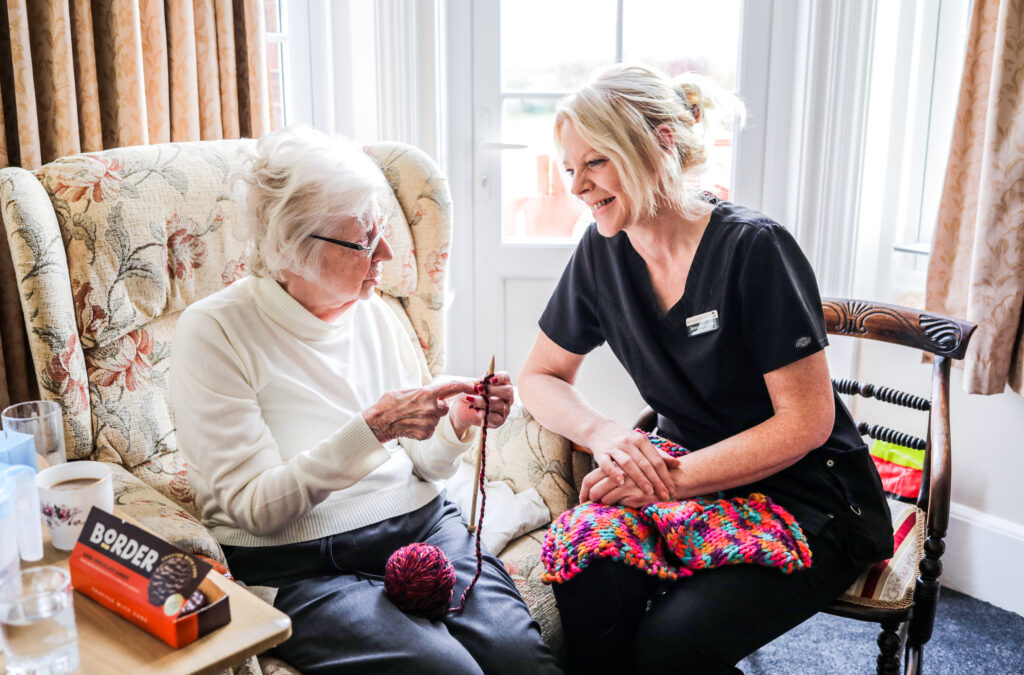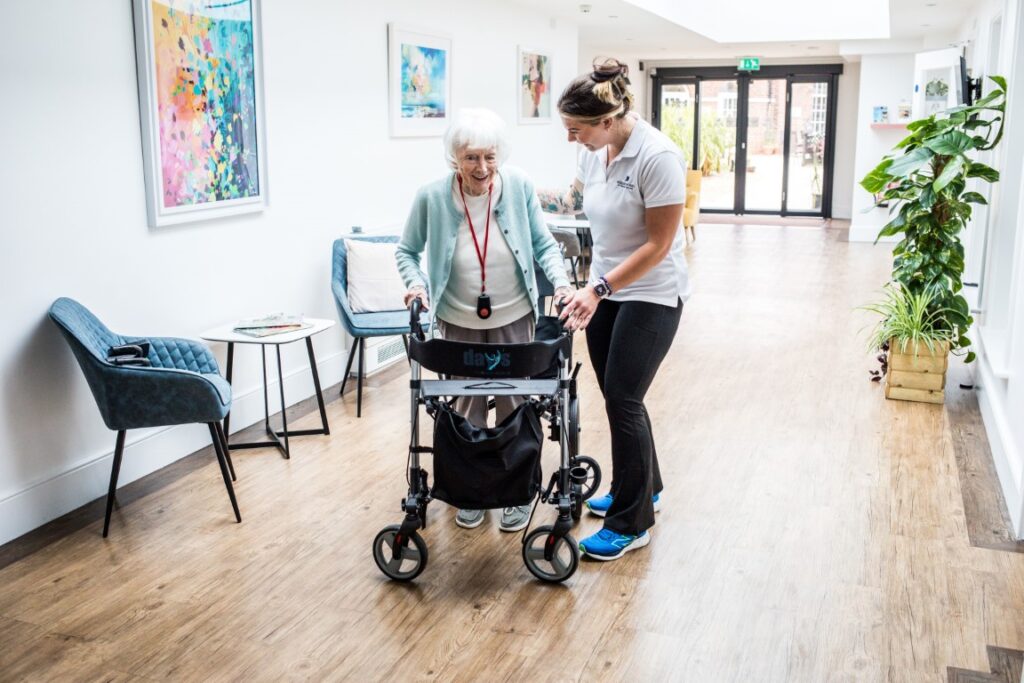Research is shining a spotlight on the significant benefits of living in a retirement village – whether independently or with more tailored support in a residential care environment. From improved health and wellbeing to enhanced safety, social connection and dignity, both independent retirement living and residential care are proving to be transformative.

Thriving independently in retirement villages
A Department of Health and Social Care-commissioned report has provided overwhelming evidence that retirement villages can help older people stay healthier, more independent, and less reliant on NHS and social care services.
The findings, compiled by The King’s Fund and the University of York, show that integrated retirement communities -sometimes known as ‘housing-with-care’ – support healthier ageing, with improvements in memory, physical activity and mental wellbeing. Residents experience longer life expectancy and are more engaged in active lifestyles.
Middleton Hall Retirement Village’s Operations Director Adam Wardale says this reflects the experience of most residents, “From using the gym for the first time to joining regular activities and events, people are encouraged to live life to the full,” he said. “That has a hugely positive impact on health and wellbeing.”
Further studies, such as one by Aston and Lancaster Universities, found that residents in retirement villages cost the NHS 38% less annually, reported 75% increases in exercise, 24% improvements in memory, and significant reductions in loneliness and anxiety.
Michael Voges, Executive Director of ARCO (Associated Retirement Community Operators), added: “There is now conclusive evidence that integrated retirement communities play a vital role in supporting our health and social care systems and in helping older people remain well and independent for longer.”

The right care, when you need it
For people who would benefit from the added support of residential care a new landmark study by the My Home Life initiative at City St George’s, University of London, has revealed six powerful ways in which high-quality care homes can help people to thrive.
The study, which included voices from residents, families and care teams across the UK, found that older people in residential care can “thrive relationally, actively, inclusively, securely, with dignity, and healthily” — when the right environment is in place.
For many, moving into care restored lost social connections and even helped mend family relationships. Activities and access to community engagement gave new purpose to those who had previously felt isolated or inactive. Others benefited from cultural inclusivity, consistent safety, help with daily tasks, and better access to healthcare.
Vic Rayner OBE, who wrote the report’s foreword, said: “This research reveals the richness of ways that care homes are enabling many older people to flourish in their last chapter of life… in some cases, truly transforming lives.”
A flexible future of living well
Whether it’s the independence of an independent retirement property or the reassurance of 24/7 personalised care, today’s older adults no longer face a binary choice. Many communities, such as Middleton Hall Retirement Village, offer both – enabling residents to transition seamlessly between levels of support as their needs evolve.
This flexible model allows older people to remain in one community, surrounded by familiar faces and trusted care teams, whether they’re living independently, need a little extra help, or require full-time care.
In the words of Dr Bethany Morgan Brett, who led the My Home Life England research: “We’ve uncovered many ways in which older people can and do benefit from residential care. When done well, it helps people thrive – not just cope.”

Supporting people to age well
Retirement villages and residential care settings are increasingly being recognised not as places of decline, but as environments where older people can live longer, healthier, and more fulfilling lives – with dignity, autonomy and meaningful connection.
Choosing the right environment depends on each person’s unique needs and preferences, but the growing body of research makes one thing clear: where and how we age matters – and the right setting can help us thrive.
Read the ‘Thriving in Residential Care’ study by the My Home Life initiative at City St George’s, University of London HERE
The Kings Fund Report ‘Evaluating the Care and Support Specialised Housing (CASSH) programme’ is available to read HERE
Research commissioned by not-for-profit retirement housing developer The ExtraCare Charitable Trust to research the value of its model on lifestyle, ‘Integrated Homes, Care and Support: Measurable Outcomes for Healthy Ageing’, can be read HERE
